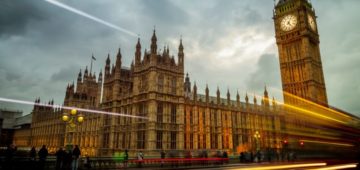- 06 December 2021
RSPH has expressed disappointment that the government’s new Drug Strategy represents another missed opportunity to put the public’s health first when it comes to UK drugs policy.
While the Strategy goes further than before to recognise the importance of treatment services and harm reduction initiatives, it fails to provide the fundamental reorientation away from criminal justice and towards public health needed to reverse the UK’s ongoing rise in drug-related harm.
New features of the strategy welcomed by RSPH include:
- The appointment of a National Recovery Champion intended to address issues with housing, unemployment and mental health which influence much problem drug use.
- Continued funding to expand the Alcohol and Drugs Education and Prevention Information Service (ADEPIS) to build resilience in young people to avoid problem drug use.
- More support for elements of the wider public workforce who have frequent contact with young people, such as school nurses, teachers and youth workers to help them promote health and wellbeing.
RSPH is supporting the launch of a radical call for safer, health-based UK drugs policy by Durham Police and Crime Commissioner Ron Hogg.
Speaking from the launch event in Durham, Shirley Cramer CBE, Chief Executive, RSPH, said: “The new Government strategy represents a small step in the right direction, and we take some encouragement from a renewed focus on the importance of evidence-based drug treatment services and moves to address underlying factors such as inadequate housing, unemployment and mental health problems which often prevent people from recovering from problem drug use.
“However, it falls far short of the fundamental reorientation of policy towards public health and away from criminal justice needed to tackle rising drug harm. Decriminalisation of drug possession and use is a critical enabler that would enable drug treatment services to reach as many people as possible as effectively as possible. Instead, the Government still continues to lead with unhelpful rhetoric about “tough law enforcement” that contributes to the marginalisation and stigmatisation of vulnerable drug users, while also pushing through severe cuts to local authority public health budgets that undermine their ability to deliver drug treatment services.”



